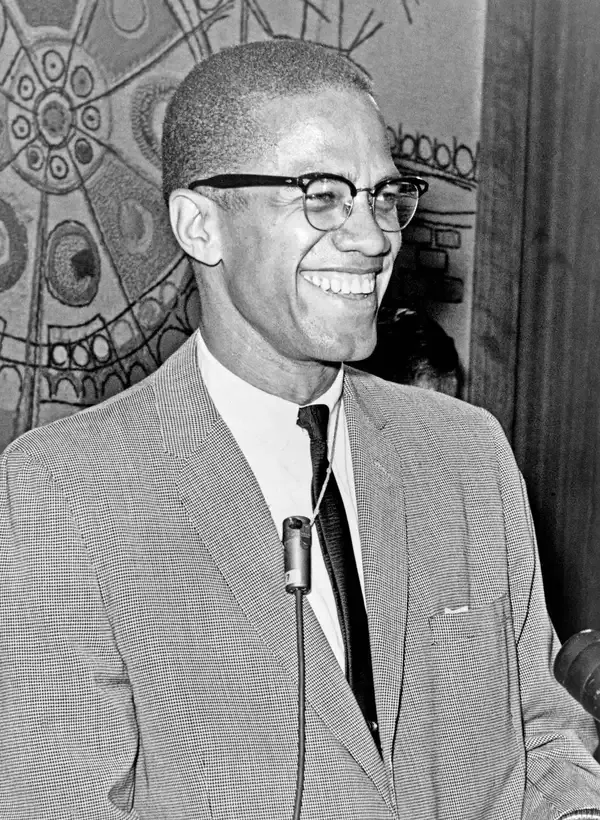Remembering Malcolm X
"Remembering Malcolm X" offers a compelling exploration of the life and legacy of the influential civil rights leader. Through a blend of personal anecdotes, historical context, and critical analysis, the book delves into Malcolm X's transformation from a street hustler to a powerful advocate for racial justice. It highlights his impact on the Civil Rights Movement, emphasizing his enduring influence on contemporary social justice issues. This work provides a nuanced portrait of a complex figure whose ideas continue to resonate.

Early Life and Background
Malcolm X was born Malcolm Little on May 19, 1925, in Omaha, Nebraska. His early life was marked by hardship and adversity, as his father was an outspoken Baptist minister and a supporter of Marcus Garvey, who was murdered when Malcolm was just six years old. His mother, Louise Little, struggled to raise him and his siblings alone, eventually suffering a mental breakdown. This tumultuous upbringing greatly influenced Malcolm's worldview and later activism.
Transformation and Activism
In the 1940s, Malcolm X's life took a significant turn during his time in prison. It was here that he became involved with the Nation of Islam and adopted the name Malcolm X, symbolizing his lost African heritage. His commitment to the teachings of Elijah Muhammad fueled his passion for civil rights and social justice, leading him to become a prominent spokesperson for the Nation of Islam.
Key Contributions and Achievements
Malcolm X’s influence on the civil rights movement was profound. He advocated for black empowerment, self-defense, and the need for systemic change in American society. His famous speeches, such as "The Ballot or the Bullet," called for African Americans to take control of their political destiny. His ideas resonated with many who felt marginalized and disenfranchised.
International Perspective
Unlike many of his contemporaries, Malcolm X took a global view of the civil rights struggle. He traveled extensively, meeting leaders from various countries and participating in global discussions on race and colonialism. His trip to Africa and the Middle East in 1964 broadened his perspective, leading him to understand the interconnectedness of struggles for freedom worldwide.
Legacy and Memory
Malcolm X was assassinated on February 21, 1965, but his legacy continues to inspire generations. His autobiography, co-written with Alex Haley, remains a seminal text in African American literature and civil rights discourse. Malcolm X's commitment to social justice and equality has led to his recognition as one of the most influential figures in American history.
Chart: Key Themes in Malcolm X’s Life
| Theme | Description |
|---|---|
| Education | Self-education during imprisonment, leading to a broader understanding of social issues. |
| Racial Justice | Advocacy for black empowerment and critique of systemic racism in America. |
| Global Awareness | Understanding of international racial issues and their impact on American civil rights. |
| Identity | Struggle to reclaim African heritage and promote pride in black identity. |
Impact on Popular Culture
Malcolm X's life and legacy have had a lasting impact on popular culture, inspiring countless artists, musicians, and filmmakers. His story has been depicted in various films, documentaries, and books, helping to educate new generations about his contributions and the broader civil rights movement. Notable works include Spike Lee's film "Malcolm X," which provides a compelling narrative of his life and struggles.
Malcolm X Day
In recognition of his contributions to civil rights and social justice, various cities across the United States have established Malcolm X Day, celebrated on May 19. These events often include discussions, performances, and educational activities aimed at honoring his legacy and addressing ongoing social issues.
Conclusion
Remembering Malcolm X means acknowledging the complexities of his life and the impact he had on the fight for equality. His teachings continue to resonate, reminding us of the importance of standing up against injustice and advocating for change. As we reflect on his legacy, we are called to consider our roles in the ongoing struggle for social justice and equality in our communities.












